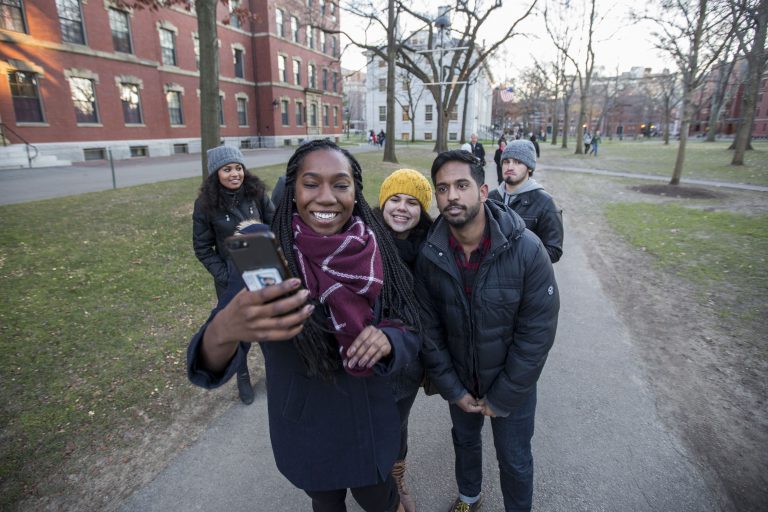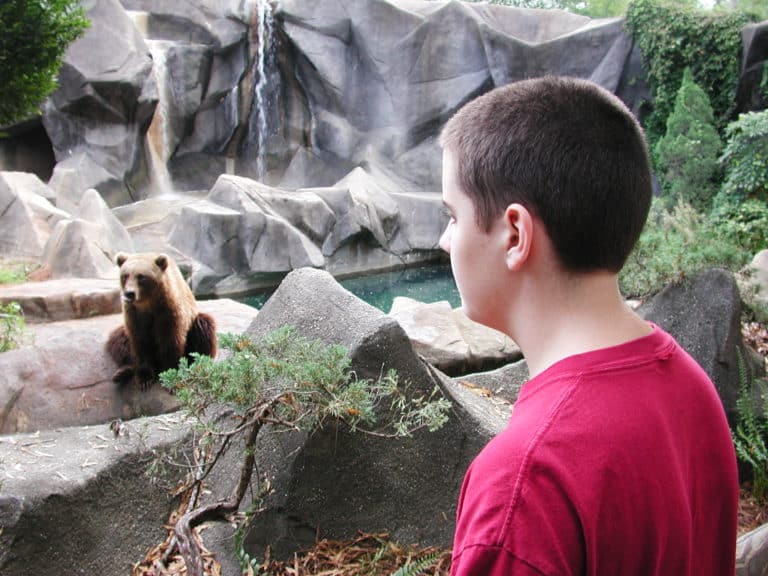
Image by Scott Eisen/Getty Images, © All Rights Reserved.
The Power of Being Seen for Who We Are
In the movie Avatar, when the character Neytiri finally meets human Jake Sully, they exchange a saying that has been a part of their love affair: “I see you.”
I see you.
This is what we want in a love affair. We want to breathe with someone who sees us for who we are, for who we can become, and is committed to being with us on that journey. The same thing is true in a friendship, in a community, how we are in our lives and in so many other relationships. We want to be seen, accepted, validated, and embraced.
Last week, we discussed what it is like when we are not seen and are instead erased and made into an “other.” Institutions, communities, and nations move somewhat slowly. There is no inevitable progress towards inclusion and liberation. Sometimes the arc of the moral universe does bend towards the good, the just, and the lovely, but it happens slowly. There is much too much backsliding. We as a human community are living through one such age right now.
When the arc of the moral universe does bend towards justice it is at least in part because some among us vow to see one another fully. We vow to not overlook the fullness of humanity in anyone. Institutions are made of people, and sometimes there are those who make the bold decision to see others, to make sure that we are all seen. We have to see all of each other, and we have to see all of us.
Upon enrolling in a school that didn’t have a category for those of us who are Muslim, I attended the orientation service. I only remember two things about that service: The magnificent Gothic chapel was unlike any space I had ever been in. It was imposing, sacred, daunting, and so, so grand.
The second was what at the time seemed like a coincidence — though now I have come to see that there are no coincidences, only the keeper of the stars planting beautiful seeds of serendipity. Every year, the university chooses one faculty member to speak to the incoming class. Being a new student, obviously I didn’t know any of the professors. I remember a high-ranking member of the university administration, wearing these grand, somewhat ridiculous, somewhat medieval robes, introduced the speaker for that year, professor Bruce Lawrence: “Professor Lawrence studies Islamic studies and comparative religion. He has studied Greek, Latin, Hebrew, Arabic, Ottoman, Persian, Urdu, Turkish, French, German.”
Persian. He spoke Persian. At least one person in this strange, imposing, expensive school spoke Persian. Someone knew the world that I came from. Someone knew the world of my parents. Someone knew that we were a poetic people. He studied Islam. He knew about this faith that I myself knew so little about.
I went up after the talk and introduced myself. To be seen by someone who saw me, my world, and the world of my ancestors… I felt like a whole person, like a human being. I felt as if there was at least one person to whom I would not constantly need to explain myself, translate myself in that exhausting way that so many of us always have to do.
In my second year, I met another teacher, Shawkat Toorawa. Officially speaking, he was my Arabic teacher. Unofficially, he was a role model to me. Years later, when we were friends, I confessed that he was the first hip Muslim I had ever met in America. (I had known plenty of cool ones in Iran, but that seemed like a world away.) He was young, charismatic, brilliant, funny, spoke about eight languages, thought fast, and expressed himself in amazingly eloquent and witty rapid responses. I was mesmerized by him and his intellectual prowess. He read everything, it seemed, from Muslim literature to the Western canon. He wore rumpled shirts and a smart jacket. I so desperately wanted to be him, to be cool like him. I might have tried (and failed, of course) to imitate his pattern of speech.
The real gift that Shawkat gave me was that he saw me. Halfway through the year, we observed the holy month of Ramadan. For Muslims, that means having a meal and a drink of water well prior to sunrise (so around 4 a.m.). The fast is broken after sunset, so perhaps around 8 p.m. The university did not function on the fasting calendar of Muslims. There were no eating establishments open at 4 a.m., naturally.
Most mornings, I would collect some breakfast food (dry cereal) and have it in my room. It was a far cry from the beautiful Ramadan experience with my mother with her famous Ramadan-only date omelets. I felt alone, cut off, isolated. Are you even a Muslim when you are alone in your dorm room having cold cereal? Can you be a person of faith without people who see you for who you are, what you are, and what you aspire to become?
Shawkat stepped in. After class one day, he asked me what I was doing for Ramadan breakfast. I answered truthfully: cold cereal in my dormitory room. He looked at me and said: “Well, that is just unacceptable.” He said that he would be coming to pick me up from my dorm the next morning at 4 a.m. Like the polite Persian boy that my momma had raised me to be, not wanting to inconvenience anyone, I refused the very thing that I very much desired. He saw me, saw through me: “Nonsense. I’ll see you in the morning.”
In the morning he came with a few other brown kids crammed into a small car. I got in. We drove to the local Waffle House. When we walked in, much to my surprise, the place was packed. Muslims. And truckers.
It was fairly easy to tell the Muslims apart from the truckers. (Years later I hoped there would be some Muslim truckers.) We sat there having waffles, eggs, coffee. I don’t remember the conversation, but I remember delirious laughter. Who knew that people could be charming and funny at 4 a.m.?
It wasn’t about the food. And it wasn’t about the car ride. It was that Shawkat saw me. He saw me and let me remember that I was somebody. I remember nothing else from that year of school, nothing else that I learned, but I remembered that a teacher made me feel like I was somebody, that I mattered, that I was important, that I was human.
I wish I could tell you that I have always had a clear sense of my own self-worth, my inherent dignity as a human being. The truth of the matter is that I needed someone to let me know that I was seen to feel like a human being.
May we live like this.
May we see each other for who we are, for what we are.May we face each other,
Seeing and being seen.
Loving and being loved.May we see all of each other.
May we see all of us.
May we be seen.


Share your reflection